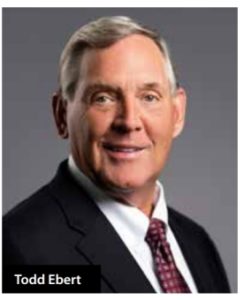By Todd Ebert

Todd Ebert
Government-run healthcare facilities – including prisons, mental health centers, drug rehabilitation institutions, school infirmaries, and public health clinics – experience operating challenges that set them apart from hospitals and other non-acute care providers. In addition to serving special populations, government facilities face unique purchasing and contracting pressures.
Run by the state and state agencies, as well as by counties, cities, tribal governments, and school districts, government providers continue to deliver high-quality patient care by creating new efficiencies and innovations that help alleviate the impact of such operating pressures.
Chief among the barriers that many state healthcare facilities face as they try to achieve operational value is purchasing volume. Many state providers simply lack enough purchasing volume to realize meaningful cost savings. For example, while a Manhattan-run urgent care clinic can expect enough visits to make the unit-cost of a flu shot economical, the same can’t be said for the one school health center in Lewiston, Neb., population 66.
Regardless of the size of their patient base, all government-run facilities are dependent on limited taxpayer funds, and subject to procedures that come with managing those funds. Such requirements can include seeking at least three bids for every contract – causing a strain on already limited resources. Additional capacity limitations can lead state-run healthcare facilities to work with decentralized procurement and data systems.
These operating pressures are compounded by the specific populations they serve, with each maintaining particular supply needs. In mental health centers, for example, medications must remain consistent in color and shape, as any alteration to appearance may cause a patient to refuse medication. This need for consistent supply makes changing drug manufacturers or any disruption to supply particularly difficult to navigate.
Healthcare group purchasing organizations are committed to helping state facilities confront these challenges. GPOs leverage the collective purchasing power of their members to obtain significant value on supplies and services, and organizations such as the Minnesota Multistate Contracting Alliance for Pharmacy (MMCAP) exclusively serve government healthcare facilities.
MMCAP helps deliver cost savings to its voluntary government provider partners so that they can do more with their healthcare dollars. In Nebraska, a state ranked 38th in population and where community providers may realize little volume-discounted purchasing on their own, MMCAP’s purchasing cooperative means that even the smallest qualified facilities may participate in contracts bid and negotiated with interstate volume. MMCAP has also helped the Maryland state government purchase from one central contract and access its data online, allowing its personnel to work on other duties.
Because of their relationships at all points of the supply chain – from drug manufacturers and storage facilities, to hospitals and other healthcare providers – GPOs are able to meet the unique population needs of state facilities. They can ensure packaging is not sharp or “weapon-ready” at mental health centers and correctional facilities, and connect states to wholesalers for stockpiling needs when public crises like Ebola occur.
In addition to addressing the purchasing and contracting needs of state healthcare facilities, GPOs are creating new opportunities for governments to innovate. MMCAP’s various councils and national member conferences allow like-facilities to learn from one another. Among the mental health providers, for example, facilities have shared their successes implementing drug testing programs, and exchanged solutions for handling increased antipsychotic drug prices.
Financial pressures and new regulatory challenges are forcing government-run facilities, like all healthcare providers, to innovate to help ensure patient access to quality healthcare. Group purchasing organizations are committed to their ongoing partnership with state providers, helping government facilities get the most value out of their limited operating funds and continue to meet the unique needs of their particular populations.
Todd Ebert, R.Ph., is president and CEO of the Healthcare Supply Chain Association (HSCA).
